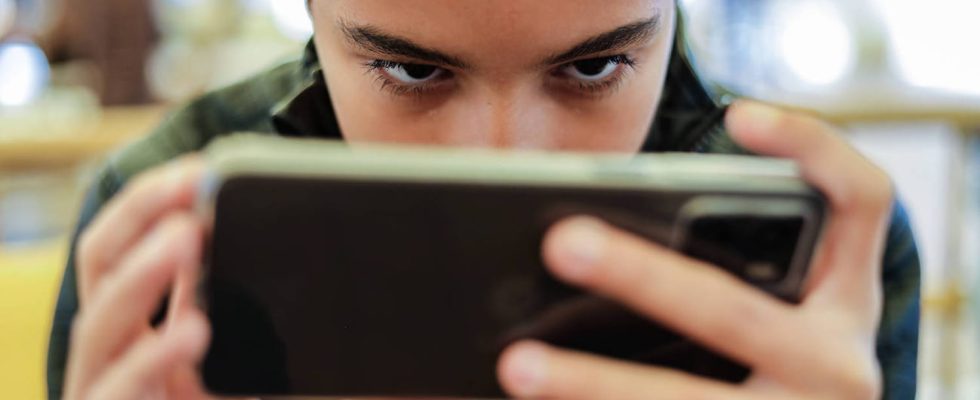Tuesday evening, during his press conference, Emmanuel Macron announced that he wanted to regain “control of our screens”. To do this, the Head of State convened a group of experts which should make its recommendations at the end of March.
“We will determine the proper use of screens for children in class and in the family,” announced Emmanuel Macron, Tuesday evening in front of the press. From the Élysée, the President of the Republic called for regaining “control of our screens” which, according to him, “too often confine [les enfants] where they should liberate.”
Last week, a group of ten experts “on the impact of young people’s exposure to screens” was brought together. Co-chaired by Amine Benyamina, psychiatrist-addictologist and head of the department of psychiatry and addictology at Paul-Brousse hospital, and neurologist Servane Mouton, this assembly has already held a first working meeting.
Among the eight other members, we include Jonathan Bernard and Grégoire Borst, epidemiologist and psychologist respectively. Two education experts, Marie-Caroline Missir, general director of Canopé (national education network for educational creation and support) and Axelle Desaint, director of the digital education division within the Internet without Fear program. Two lawyers, Florence G’sell and Célia Zolynski also make up the group. Finally, two digital experts complete this consortium of experts. They are Catherine Rolland, project manager of the GameLab at École Polytechnique, and Grégory Veret, co-founder of the Xooloo app, a coaching application that helps children under 12 use their first smartphone in a way responsible.
What to expect from the work of these experts?
The ten professionals have already noted “the diversity of possible approaches”, an advisor from the Élysée told the daily West France. The work of the experts will have to take the direction of four main axes. First, bring to light an observation on the impact of screens on mental and physical health. Then evaluate the effectiveness of regulatory measures such as parental control. Then, define concrete recommendations on the use of screens. Finally, the group will offer digital tools adapted to all audiences and according to the ages to be valued.
Emmanuel Macron announced Tuesday evening that “there may be bans [et] restrictions” on screens for children and adolescents. But these possible measures seem difficult to put in place as long as the European Union does not also take up the issue. According to the Élysée, “the issue is less prohibit than emancipate and raise awareness of the issues.” “The future of our societies and our democracies is at stake,” insisted the President of the Republic on Tuesday evening.
It is also unlikely that the experts’ proposals will result in the creation of a law. A proposed law “relating to the prevention of excessive exposure of children to screens“, which was tabled in January 2023 by Renaissance deputies, already recommended obligations for prevention messages on digital products and to limit the use of digital tools in schools and early childhood establishments.
